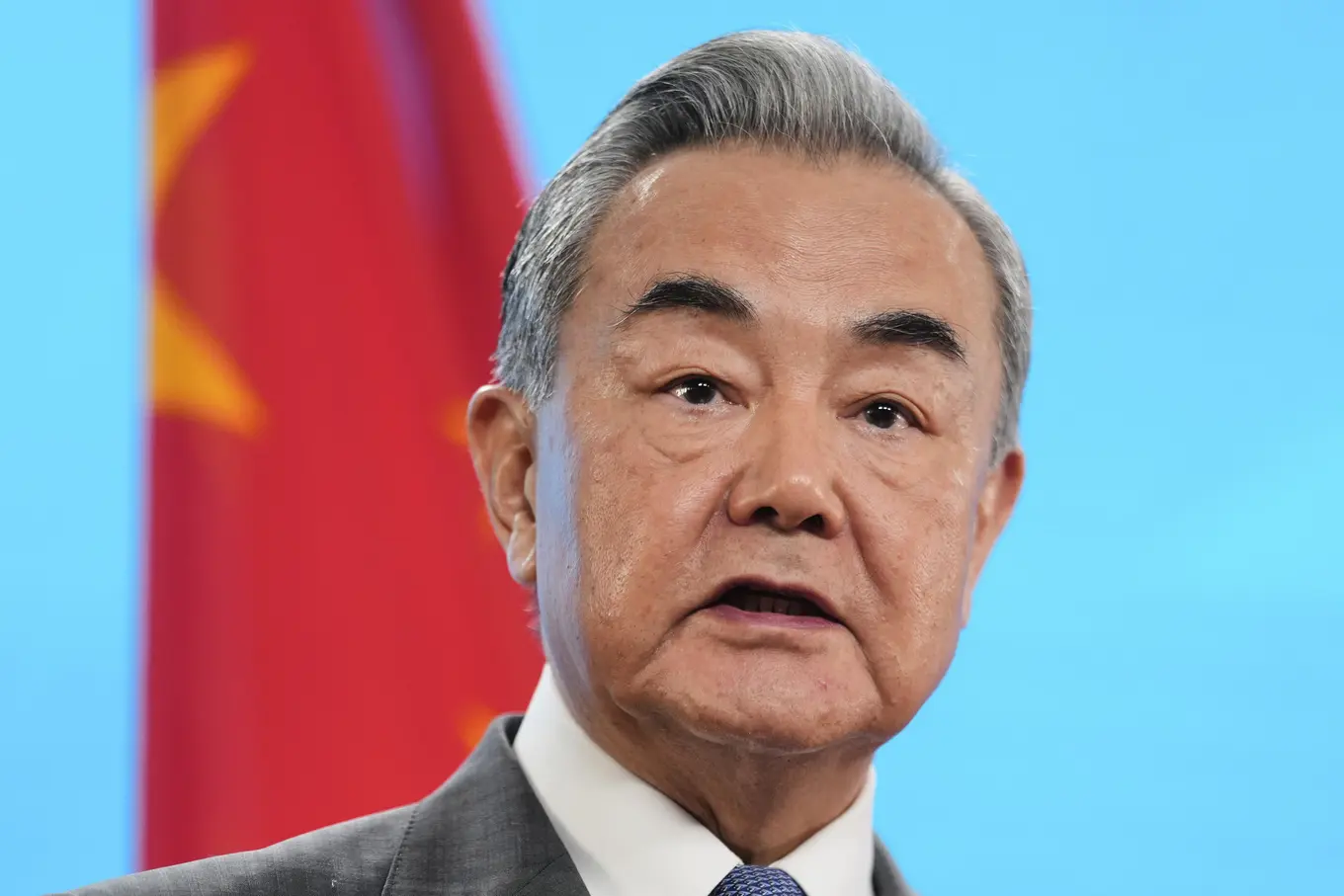During a recent closed-door meeting between EU foreign affairs chief Kaja Kallas and Chinese Foreign Minister Wang Yi, Beijing dropped its usual diplomatic caution and outlined its strategic priorities regarding the war in Ukraine. Behind formal statements about cooperation and mutual interests, Wang reportedly said something that, according to European diplomats, could have far-reaching geopolitical consequences across Eurasia: “Russia must not lose.”
As reported by the South China Morning Post, citing informed sources, the Chinese foreign minister stated bluntly that Russia’s defeat would lead the United States to focus even more intensively on Asia—something Beijing sees as unacceptable. In other words, China has made clear that a prolonged conflict in Europe serves its interests by keeping Washington distracted from the Asia-Pacific region.
A conflict of interests: China as Russia’s lifeline?
Speaking in Brussels ahead of the meeting, Kaja Kallas declared that “our relations in the area of security are increasingly burdened.” She argued that Chinese companies have become a lifeline for Moscow, helping to sustain its war effort against Ukraine.
Moreover, Kallas accused Beijing of engaging in cyberattacks, interfering in democratic systems, and employing unfair trade practices. “You cannot support a war in Europe while simultaneously seeking closer ties with it,” she said, stressing that Beijing must address this contradiction.
Particularly alarming to the EU is that some of the components being supplied by China—reportedly ending up in Russian weapons systems—originated from European production.
China: “Not a source of Europe’s problems”?
The official statement from the Chinese Ministry of Foreign Affairs struck a much softer tone. According to Beijing, there is no fundamental conflict of interest between the EU and China, and instead a broad spectrum of shared interests. The statement emphasized that “Europe is currently facing several challenges, but none of them has come from China, nor is or will be caused by China.”
Yet behind closed doors, the diplomatic language was anything but soft. According to the South China Morning Post, Wang Yi gave Kallas “a lesson in realpolitik,” as described by meeting participants.
He reportedly stressed that, in Beijing’s view, the war would already be over if China had provided weapons and financial aid to Russia on a large scale—favoring Moscow’s victory. While the statement stops short of acknowledging direct support, it makes it clear that China is deliberately choosing to keep its involvement limited, using the war as a geopolitical lever.
Europe increasingly isolated?
As Russia expands its attacks across Ukraine and Washington tries to broker a ceasefire with Kyiv and Moscow, Europe finds itself in a vulnerable position. Although not directly involved in peace talks, EU countries have become the main supporters of Ukraine—particularly in light of temporary US disengagement.
With seventeen sanctions packages against Russia, the intake of millions of refugees, and large-scale arms deliveries, Europe has gone beyond symbolic support. As NZZ notes, European states have a direct and existential interest in Ukraine’s victory—a position fundamentally different from China’s.
Whereas Europe seeks to end the war and restore security on the continent, China appears to benefit from its continuation, as it diverts American focus away from Beijing’s neighborhood, including Taiwan and the South China Sea.
Trade war amid diplomatic tensions
The meeting between Kallas and Wang was originally scheduled as preparation for the upcoming EU-China summit in July. But growing trade tensions have pushed partnership discussions to the sidelines. The EU is unhappy about China’s export controls on rare earths, essential for electric motors and other technologies.
Beijing, in turn, opposes EU tariffs on Chinese electric vehicles. Brussels argues that state subsidies in China have distorted the market. China is now escalating the dispute: starting July 6, it will impose higher import duties on European brandy, triggering anger in Brussels. A Commission spokesperson described the new tariffs as “unfair, unjustified, and contradictory.”
What next?
According to European observers, China’s position on the war in Ukraine has become increasingly transparent. While Beijing previously insisted on being a neutral party, it now effectively signals that a Russian defeat would damage Chinese interests. This approach turns China into an informal party to the conflict—albeit not on the battlefield.
As NZZ concludes, “The problem lies not in rhetoric, but in Beijing’s long-term strategic thinking.” While Europe struggles to balance diplomacy and economic interests, China is playing a long game—treating the war in Ukraine as a useful diversion in its broader contest with the United States.
This article was prepared based on materials published by Neue Zürcher Zeitung. The author does not claim authorship of the original text but presents their interpretation of the content for informational purposes.
The original article can be found at the following link: Neue Zürcher Zeitung.
All rights to the original text belong to Neue Zürcher Zeitung.


















